The 3 Types of End Users That Are Bogging Your Tech Support Teams Down
by Stephanie Faris on Monday, June 13 6:00
Technical support professionals serve an important purpose in organizations. Their specialized knowledge and training skills make them hard to find. When businesses do develop a good team, it s important to nurture that team to increase retention rates.
Unfortunately, sometimes the environment itself can sometimes lead to high turnover. IT work can be extremely stressful, especially if teams feel as though they re constantly rushing to resolve the many tickets that come into the help desk each day. Here are three types of end users that create excessive work for IT teams, leading to possible burnout.
The Untrained
As important as computer skills are to office jobs, many hirers somehow manage to bring technically-deficient employees on board. When this happens, technicians often find themselves acting as trainers on some of the most basic computer tasks. Everything from changing a printer s toner cartridge to creating a mailing list can come through the help desk. Teams that have a strong dedication to customer service may feel pressured to provide one-on-one training for these employees. However, not only is this a waste of specialized technical workers, it hurts the untrained user who needs a formal class. Businesses should consider investing in online training services and allowing IT staff to recommend courses that novice employees need to take.
The Expert
On the surface, the expert seems like the ideal user. This person should be someone who rarely needs assistance, since they know how to troubleshoot most of the things that happen. Yet somehow they manage to place some of the most time-consuming calls your team will see. Theirs are the most important devices to lock down to avoid malware or security breaches, since they tend to download the files they need without asking first. However, at the same time, they can be valuable assets to the help desk team, since they will often help their work neighbors with minor computer problems. Setting restrictions at the server level can help minimize questionable downloads to keep these high-level users from being more of a hindrance than a help.
The Recreationist
The recreationist has very little interest in work, especially with speedy Internet access at their fingertips. These are the end users who will put in tickets because they can no longer stream Netflix or listen to Internet radio while they work. Supervisors may request that their Internet activity be monitored as a disciplinary measure. Whether or not your IT team chooses to do this or not, this type of babysitting can become counterproductive. Set boundaries and, if necessary, find a way to run regular reports that show overall statistics rather than picking on one employee. However, if a user s behavior could potentially lead to a security issue or it slows the network down, it might become necessary to pull a report on that person as documentation.
IT support staff work hard to keep a business s devices and network infrastructure operational. While end users can make that process challenging, they also bring job security to tech workers. By finding ways to limit the damage employees can do, teams can provide a secure, productive environment for the businesses they support.
